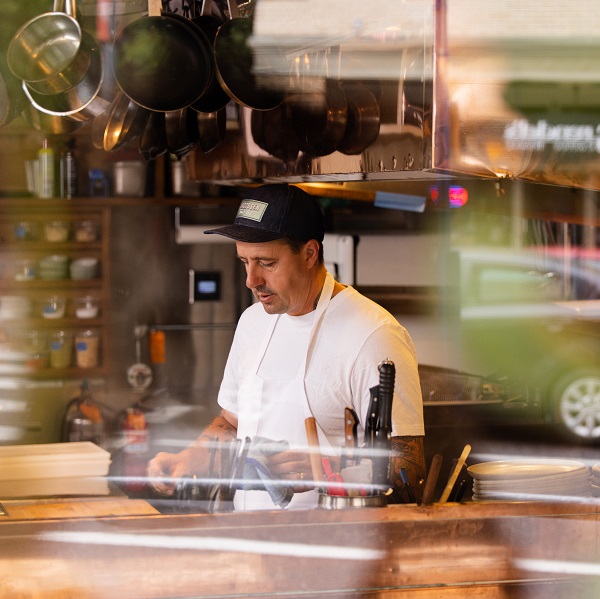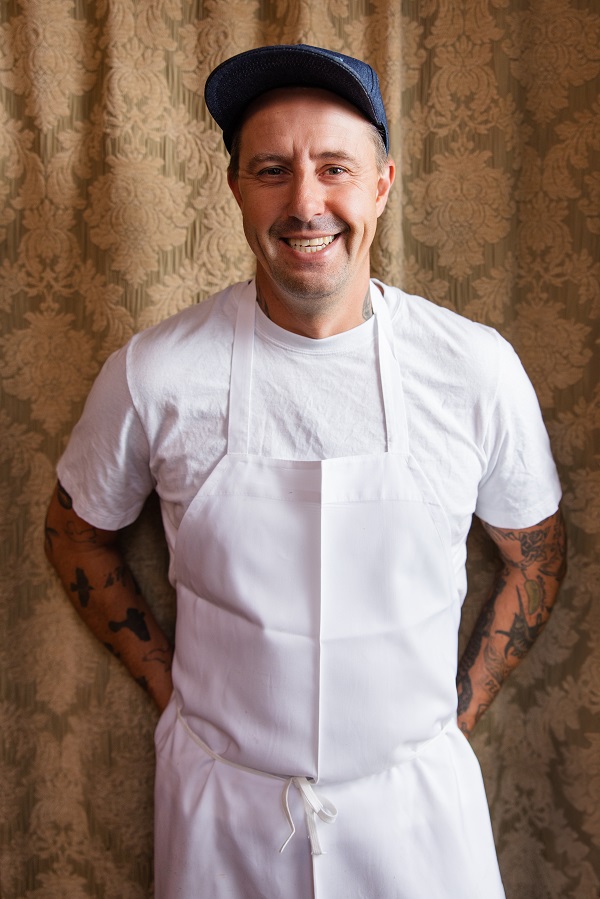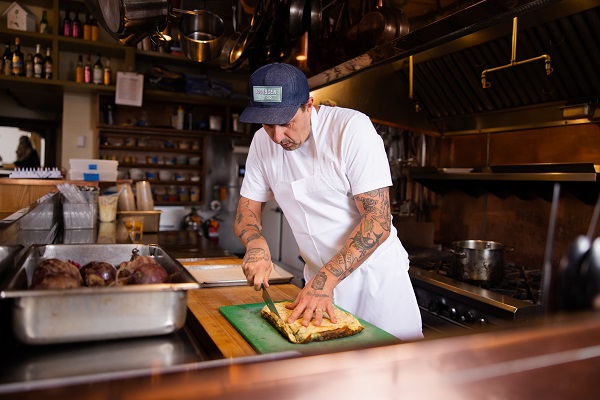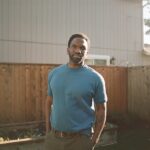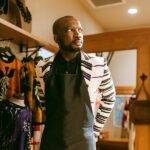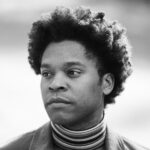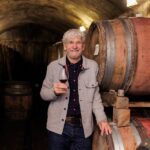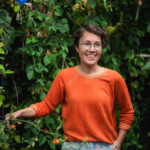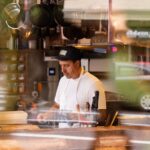SEEING THE FLAVORS
Written by Joe Wilkins; Photographed by Christine Dong
Chef Gabriel Rucker can, he attests, taste in his head. “I can imagine what’s going to happen,” he says. “I can see the flavors.” Rucker might be in the middle of another early morning set of box jumps or deadlifts at the gym, but all the while he’s sifting through ingredients and imagining dishes—his classics include beef-cheek bourguignon, lamb’s tongue potato salad, and foie gras profiteroles—and tasting, tasting, tasting away. As the owner of two iconic Portland restaurants, Le Pigeon and Canard, and a father of three young children, Chef Rucker’s life is busy and, often, loud. But at the gym, pre-dawn–before he drops his kids off at school, before he heads into work—he has a chance to breathe and think and consider what vegetables are in season, what proteins sound exciting and challenging to work with, and whether the tea-brined salmon and the nettle lasagna will stay on the tasting menu.
The broad outlines of Chef Rucker’s story are likely familiar to many Northwesterners. After apprenticing in kitchens in Napa, a young, adventurous California chef heads north, hoping to find good work and reasonable rent. Not long after, and at just twenty-five years old, Rucker opens Le Pigeon—the daring, French-inspired bistro Bon Appétit magazine will one day call “the restaurant that put Portland on the national culinary map.”
Fast forward, and Rucker opens two more restaurants: Little Bird in 2010, which enjoys a nine-year run; then Canard in 2018, which eventually expands into Oregon City. He publishes a cookbook, Le Pigeon: Cooking at the Dirty Bird, in 2013. Along the way Chef Rucker tucks two James Beard Awards under his wing, as well as a host of commendations and accolades from national and international venues such as Food & Wine, Wine Spectator, The Wall Street Journal, The Guardian, and Portland Monthly. You might think a TV show or move to New York City comes next—but here is where Rucker’s story diverges from the familiar tale of the fast-rising celebrity chef. In the fall of 2013, after an incident at a dinner party, Chef Rucker sobers up.
Since then, Rucker has become a very public advocate for a healthy lifestyle and a more sustainable, less toxic restaurant industry; check out his Instagrams @fitchefpdx and @ruckergabriel for pics of funfetti pancakes and mid-workout bicep flexes. “I enjoyed my partying days,” he says, “and I wouldn’t take them back–or most of them–but everybody has to grow up.”
More than recipes and acclaim, this is perhaps what is most impressive about Chef Gabriel Rucker—that he has indeed grown up. It’s a cliché by now, the wunderkind musician, novelist, or chef who can simply do things that others can’t, who can see behind the words or around the notes—the one who can “see the flavors,” the one who rises like a rocket and wows the crowds and piles up the accolades–the one, though, who invariably flames out, who burns the candle at both ends and burns themselves right up, a hot, bright shining star—here a moment, then gone.
Not Chef Rucker. He’s been in Portland twenty years now. He is here for the long haul. And he’s telling us a new story about what it means to be a world-class creative—an unparalleled chef—and still be a grown-up person, thriving in maturity.
A big part of that story is sobriety. “When it comes to leading, being creative, just doing your job,” Rucker explains, “everything is ten times harder with a hangover. If you get a good night’s sleep, and you take care of your mind and body, then you’re fresh and ready to tackle the day when you walk into work. And you feel good about yourself. As far as leadership is concerned, for young chefs, I can show people there’s another way.”

